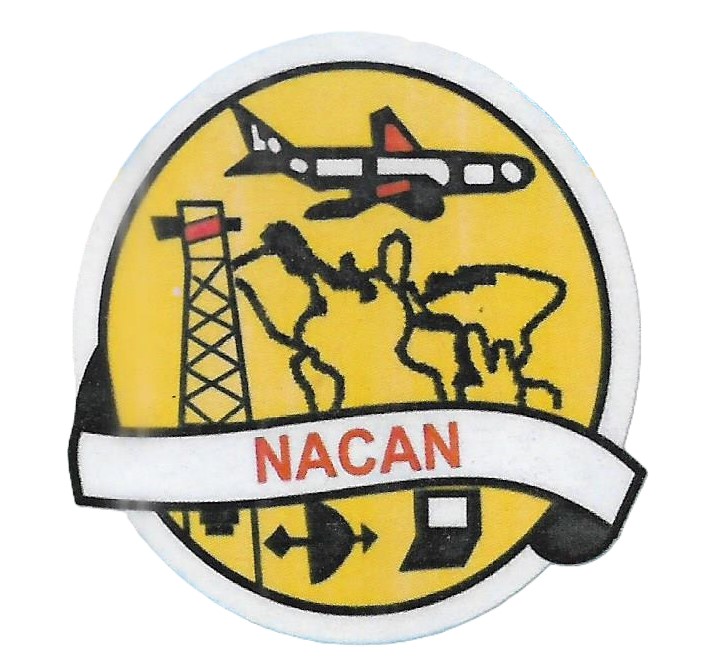

NACAN:
Pushing the Boundaries of Aviation Safety,
Empowering Safe Skies

Data and information are a critical element for ensuring and assuring the safety and efficiency of civil aviation operations. This underscores the widely acknowledged fact that the provision of timely, reliable, and efficient aeronautical communications services is critical not only for promoting the safety, reliability, and efficiency of air navigation services, but also for ensuring the continuing safety, security, efficiency, regularity, and sustainable development of the global civil aviation ecosystem. Airline operations centres, pilots, air traffic controllers, meteorological service providers and other air navigation services (ANS) and air transportation stakeholders all rely on the services provided and the safety-critical information communicated by Aeronautical Communicators. As the professional association representing the interests of Nigerian aeronautical communicators, the greater chunk of whom are engaged with the Nigerian Airspace Management Agency (Nigeria’s Air Navigation Service Provider), the National Airtraffic Communicators Association of Nigeria (NACAN) – a critical ICAO Annex 10, Volumes II and III stakeholder registered as a professional body under Nigeria’s Companies and Allied Matters Act – assumes huge responsibilities focused on raising the ante in relation to aeronautical communications practices in Nigeria.
“The National Airtraffic Communicators Association of Nigeria (NACAN) is a professional association at the Nigerian Airspace Management Agency (NAMA), Nigeria’s air navigation service provider,” says Rabiu Muhammad Sani, President of NACAN. “Its members are saddled with the great responsibilities of communicating and/or exchanging all air traffic service messages with all aviation stakeholders concerned in accordance with the standards and recommended practices laid out in ICAO Annex 10 Volumes II and III.”
The increasing pace of technological advancements is no doubt changing the way airtraffic communicators are discharging the huge responsibilities relating to the communication of air traffic service messages within the air traffic management/air navigation service (ATM/ANS) framework. One notable area is the industry’s transition from the legacy X.25 protocol-based AFTN (Aeronautical Fixed Telecommunications Network) to the X.400-compliant and Aeronautical Telecommunication Network-dependent (ATN) Air Traffic Services Message Handling System (AMHS), driven largely by the year-on-year growth in global air traffic volumes. Although, the extensive AMHS project embarked upon by NAMA is yet to become operational, the NACAN President is clearly upbeat about the actualisation of the ATM upgrade project.
“Unfortunately, the ATS Message Handling System is not yet operational, but we are optimistic,” says Rabiu. “The current NAMA administration is doing everything possible to actualize the implementation and service commencement this year or next.”
LEVERAGING PARTNERSHIPS, PROMOTING ADVOCACY
Given the imperativeness of cordial handshakes between and among the critical stakeholders in the air navigation services domain and beyond, NACAN has established and is continuing to establish enduring partnerships with sister associations, agencies and other relevant organizations in the Nigerian aviation industry. NACAN has also established solid relationships with international bodies in an attempt to shore up the global visibility and professional relevance of the Association.
“NACAN has for long established a strong bond and excellent working relationships with all the sister professional associations, aviation unions and organizations,” says Rabiu. “We have been actively strengthening these relationships through workshops, seminars and collaborative meetings.”
A significant milestone in NACAN’s advocacy and collaboration drives was clearly the outcome of the Association’s outreach to Executive Governors of States in Nigeria, requesting for their interventions to break the employment jinx affecting the Aeronautical Communications Department of NAMA with resultant phenomenal manpower shortages over a period of close to two decades. This innovative strategy resulted in the then Executive Governors of Kano and Yobe States, amongst others, sponsoring their indigenes for Aeronautical Communications training at the Nigerian College of Aviation Technology (NCAT).
“That initiative was highly commendable. It has since been enacted into law by the two governors mentioned and will likely be sustained by any forward-thinking administration. The policy revitalized the Aero-Comms department of NAMA, which had gone 20 years without new hires,” says Rabiu. “Under the leadership of the late Philip Aderosoye of blessed memory, NACAN appealed to state governors across Nigeria for sponsorship of communications trainees at the Nigerian College of Aviation Technology. Kano, Yobe, Bauchi, Kaduna, and Gombe responded by sending their indigenes for training, thus effectively reviving the Aero-Comms department.”
MILESTONES
Ever since celebrating its 25th anniversary in November of 2021, NACAN has been witnessing positive transformations in relation to not only the way airtraffic communication is practiced but also in relation to welfare and governance issues within the fabrics of the Association. One noticeable milestone is the outcome of NACAN’s manpower advocacy drives, culminating in the absorption by NAMA of a total of nine Aeronautical Communications personnel earlier trained at NCAT. Another milestone is an increase in the frequency of local and foreign training programmes particularly in AMHS, thanks to the positive staff development climate subsisting at the Nigerian Airspace Management Agency. On its own part, NACAN has also been active in providing orientation programmes for airtraffic communicators participating in the Aeronautical Station Operator Licence (ASOL) examinations conducted by the Nigeria Civil Aviation Authority.
The NACAN President, Rabiu Muhammad Sani, foresees a very bright future for the air traffic communications profession in Nigeria. It is a forecast that thrives on the resilience of the aeronautical communications profession over time.
“The future would be brighter than what we are seeing today. The current Nigeria Civil Aviation Authority boss has come to fully understand the safety-critical functions performed by Air Traffic Communicators and he is presently doing everything possible to integrate those functions into the Nigeria Civil Aviation Regulations and provide all the necessary requirements for the oversight and technical expertise for communications operations,” Rabiu concludes. ◙

All rights reserved. No part of this material or the content of this website may be reproduced or published in any form or by any means without the prior written permission of the publisher.
Contact: atsei@dextermarie.com



